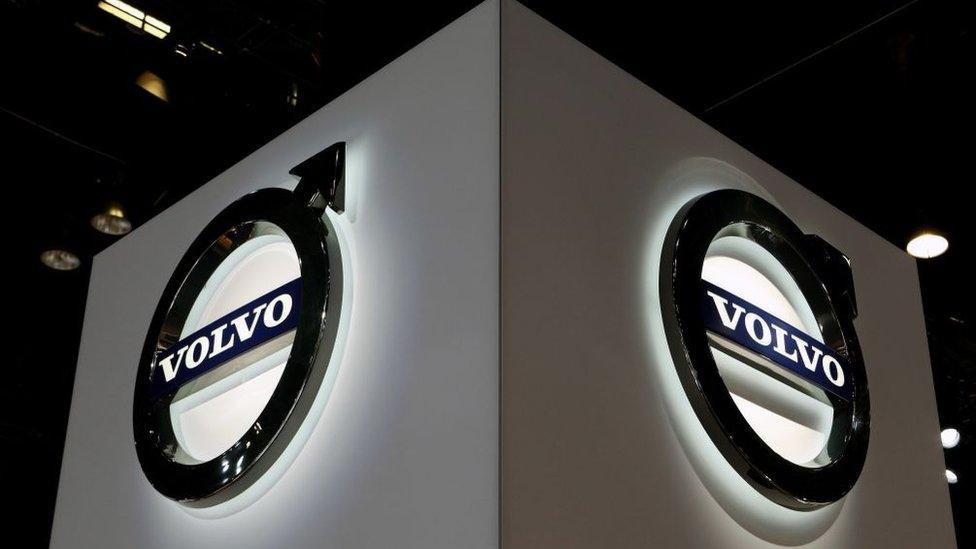Volvo recalls 70,000 cars in the UK over fire risk
- Published

Volvo is recalling almost 70,000 cars in the UK over concerns that they could catch fire.
It is part of a global recall of more than half a million diesel vehicles that suffer from a fault.
The Swedish carmaker said that "in very rare cases" a plastic part of the engine can "melt and deform" and in "extreme cases" catch fire.
The issue affects some cars made in the past five years. Volvo said it is contacting affected customers.
The carmaker said in "the most extreme cases" the fault, involving the engine manifold, had caused a fire.
Volvo did not say how many fires had been recorded, but said that there had been no reports of injuries related to the fault.
'Safe to use'
The problem affects cars from the models years 2014 to 2019 with four-cylinder diesel engines.
It is not clear how long it will take for the company to fix the affected vehicles but Volvo said: "We will do our utmost to perform this action without any unnecessary inconvenience."
Volvo said it was contacting all customers whose vehicles are affected to alert them to the issue.
Drivers are being told it is "safe to continue to use your car" if it does not show any signs of a problem, such as an engine warning light illuminating, a lack of power or an "unusual smell".
A second letter will be sent confirming when a solution to the problem is available.
Volvo said it notified the relevant authorities about the issue "as soon as it was identified".
It apologised to customers for the inconvenience caused, stating that it is taking "full responsibility to ensure the highest quality and safety standards of our cars".
Volvo makes 600,000 cars each year, of which around 50,000 are sold in the UK - fewer than are being recalled in the country.
Last year, Toyota announced a recall of more than 2.4 million hybrid vehicles worldwide because of a fault in their systems that could cause them to lose power.
And in April, it emerged that Vauxhall is recalling 235,000 Zafira cars for a third time after a new source of fires was discovered. It followed earlier recalls in 2015 and 2016.